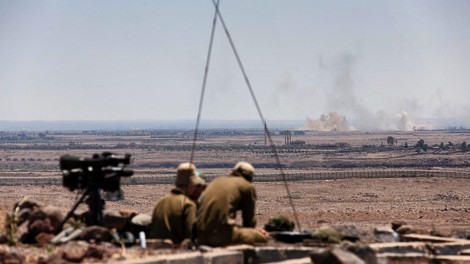Your podcast discovery platform
Curious minds select the most fascinating podcasts from around the world. Discover hand-piqd audio recommendations on your favorite topics.

piqer for: Globalization and politics Global finds
Sezin Öney, originally from Turkey, is based in Budapest and Istanbul. She her journalism career as a foreign news reporter in 1999 and she turned into political analysis as a columnist since 2007. Her interest in her main academic subject area of populism was sparked almost decade ago; and now she focuses specifically on populist leadership, and populism in Turkey and Hungary. She studied international relations, nationalism, international law, Jewish history, comparative politics and discourse analysis across Europe.
ISIS Back On The U.S. Agenda
The U.S. President Donald Trump changed his mind—again. This time his change of heart concerns the U.S. policy towards ISIS, and of course Syria.
According to the Pentagon, ISIS has fourteen thousand fighters—not just members or affiliates—in Syria, and up to seventeen thousand fighters in Iraq. Alternatively, the United Nations argues that ISIS "morphed from a proto-state into a covert global network, with a weakened yet enduring core in Iraq and Syria, with regional affiliates in the Middle East, Africa, and Asia".
And while Trump was very clear that he wanted to "get out" from the Middle East, and that the United States had spent trillions of dollars in the Middle East over the past seventeen years, only "to get nothing—nothing out of it.” He called it “a horrible thing.”
And now Trump agrees with Brett McGurk, the Special Presidential Envoy for the Global Coalition to Counter ISIS, and various other people in the White House and Pentagon who he staunchly disagreed with barely back in April. McGurk announced on August 17th that the U.S. is "remaining in Syria”, and continued on to say:“The focus is the enduring defeat of ISIS. We still have not launched the final phase to defeat the physical caliphate. That is actually being prepared now, and that will come at a time of our choosing, but it is coming.”
The U.S. Secretary of Defense, James Mattis, affirmed that the Trump administration does not want to withdraw U.S. troops "until a peace process is under way to end the war in Syria and map the country’s political future."
And that seems to be a really long time away.
Why?
Because the parties must come around a table and discuss.
“We need the Geneva process—the U.N.-recognized process—to start making traction towards solving this war,” Mattis said.
But before, "all" involved want to show off their military might and power.
As Wright puts it: "[T]here’s still a very long way to go to counter, contain, or eliminate the world’s deadliest terrorist group"—meaning ISIS.
